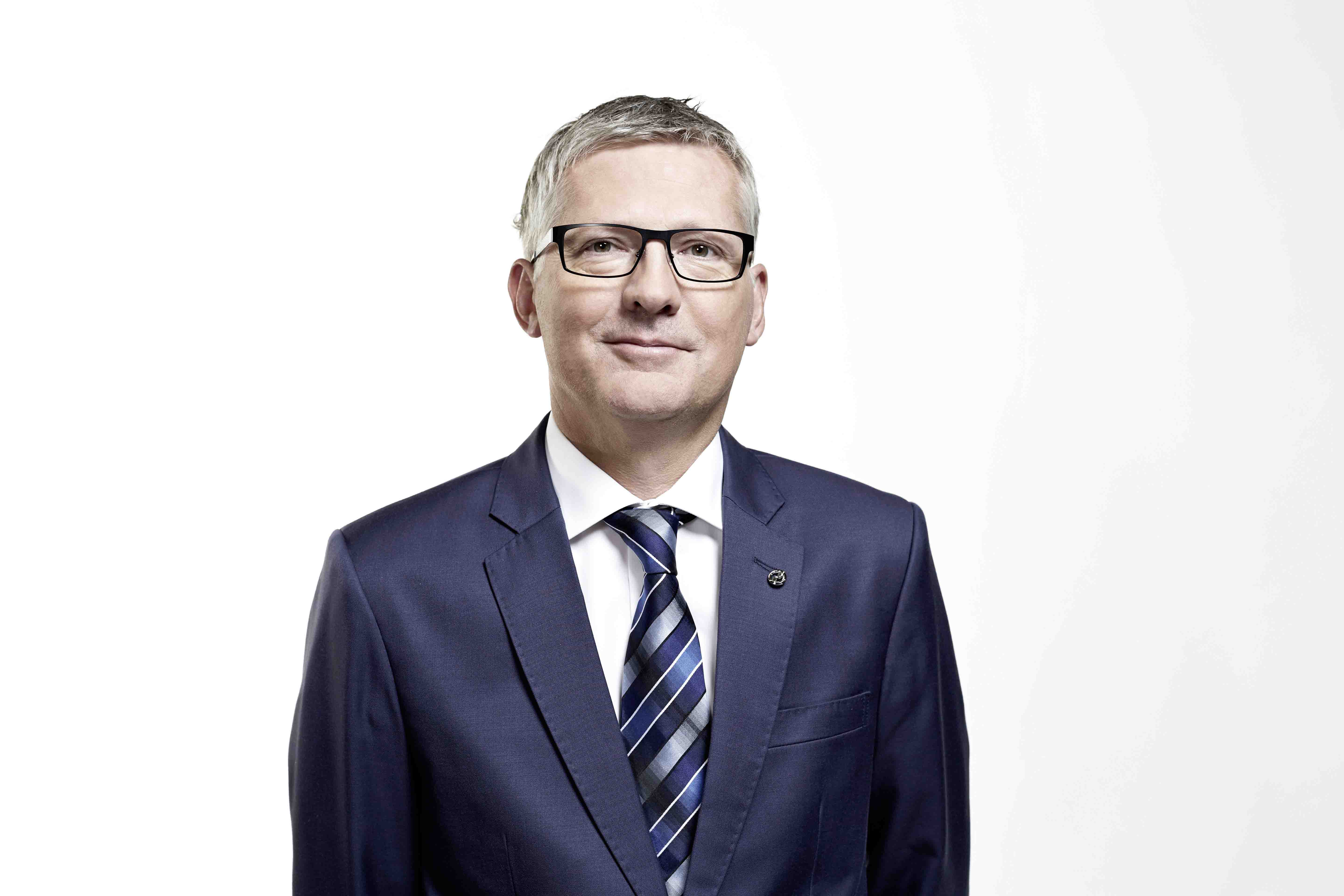
• Big development steps in the field of recycling
• Chemical can at best only supplement mechanical recycling
• Circular economy as export opportunity
More and more manufacturers of consumer goods promise to launch only recyclable products in the near term. Are there already sufficient capacities to achieve this?
Manfred Hackl: In recent years, substantial capacities have been developed, and many more will follow. Of course, this is driven by demand. The more regranulate is in demand the more capacity will be created. At present, the market is on the move.
Do you also observe this trend at Erema as supplier of recycling machines?
Hackl: You only need to look at the past three years to see where the trend is heading. In recent years, our turnover has continuously risen, so that in the past business year we have increased to 180 million euros. Recyclers, our customers, are currently investing strongly.
Does the recycling market need different machines?
Hackl: Recent years have seen many technological developments, for example in the field of process stability, filtration or odour minimisation, and many new products have hit the market, allowing recyclers to manufacture higher quality regranulate. This and also further development in the field of processes preceding extrusion can achieve results today that were unimaginable three years ago. This trend will continue. Mechanical recycling will further develop. For regranulate is no longer utilised to make only park benches but also many high-value products.
At present, fibre-reinforced plastics can hardly be recycled. In view of the high pace of innovation, will there be recycling solutions also in this field?
Hackl: Basically, it is possible that in the long run solution approaches will be available. But it would not be right to concentrate our efforts on recycling of CFK, for instance. Wind turbines and other parts made from this material will not cause any problems for many years to come. We should rather focus on issues that are now required. Naturally in parallel, you can also proceed with developments making CFK recyclable. But currently packaging waste disposed in the environment is the greater challenge. It is vital to close the circuits more quickly and in a better way.
Many plastics manufacturers are researching in the direction of chemical recycling. Does that mean business losses for mechanical recycling in future?
Hackl: Chemical recycling is still a vision, and in the long term at that. But even when it works out, it will always be a supplement to mechanical recycling as the techniques in this field have already been perfected and are more economical. Very high-grade granulate can be produced for many applications by mechanical recycling, and there are constant optimisations and new developments as will be shown at the K 2019. It also has the smallest CO2 footprint. Chemical recycling might be applied in special cases but not for the larger part of the material. I do not really see it as competition since there is enough material for everyone.
Can an efficient circular economy be exported from Europe?
Hackl: I am convinced that it can act as role model for other regions in the world. It is possible that all parties involved here in Europe – i.e. the industry, the machine manufacturers, the waste disposers – show how to set up collection systems, how to implement the individual steps and how all parties can work together. Then a business model could indeed be created fit to sell this technology by way of service, consultancy or equipment. In China, the notion of circular economy is already taking root. In Shanghai, a collection system was introduced and has been effective since the 1st July. It was implemented within a few months. Very quickly again, as we would expect from China. This way of thinking is meanwhile widespread in the minds of Chinese decision makers. The country has been recycling for a long time, until recently imported plastic waste, by the way. I think that export opportunities will increase if we push and spread the idea of circular economy.
Will the bad image of plastics improve when we have circular economy in Europe and when we can show the public that it functions?
Hackl: Definitely. It is mainly a matter of proving and communicating it. For one thing is sure, in future we will need plastics even more urgently than today in order to maintain our standard of living and our way of life, also in the face of a still rapidly growing world population. For this reason, we must close the circuit for plastics the way we did with paper, metal and glass.
—————–
In our world, plastics are indispensable. The downside is the littering. Carelessly discarded plastics products condense to form thick carpets, not just on rivers and seas, but also on land. A complete circular economy could prevent this evil and put the focus back on the benefits of plastics. In order for this to be a success, we all need to work together: processors, raw material manufacturers, mechanical engineers and recyclers, but also brand owners, end consumers and politicians.
VDMA will shine the spotlight on circular economy at the leading K 2019 trade fair in Düsseldorf in October and show how closed loops can work effectively. Throughout the process, stakeholders will be having their say in a series of interviews in the run-up to this international industry event.

About VDMA Plastics and Rubber Machinery
More than 230 companies are members of the association, covering more than 90 percent of the industry’s production activities in Germany. Ten percent of our member companies come from Austria, Switzerland and France. The German member companies represent sales of EUR 7 billion in core machinery and EUR 10 billion including peripheral technology. Every fourth plastics machine produced in the world comes from Germany; the export rate is 70 percent. Ulrich Reifenhäuser, Member of the Management Board of the Reifenhäuser Group, is the chairman of the association.